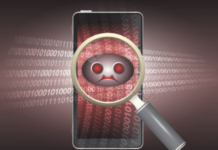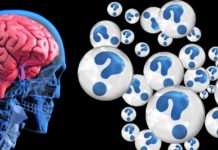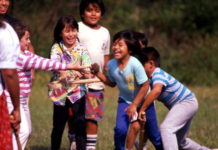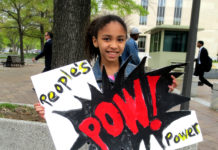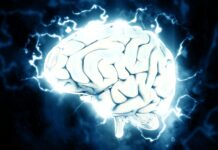Madness and the Family, Part III: Practical Methods for Transforming Troubled Family Systems
We are profoundly social beings living not as isolated individuals but as integral members of interdependent social systems—our nuclear family system, and the broader social systems of extended family, peers, our community and the broader society. Therefore, psychosis and other forms of human distress often deemed “mental illness” are best seen not so much as something intrinsically “wrong” or “diseased” within the particular individual who is most exhibiting that distress, but rather as systemic problems that are merely being channeled through this individual.
The Forced Psychiatric Treatment of a Child
This is my story of forced psychiatric treatment as an eight-year-old girl, from my perspective as an adult mental health professional. Being held down kicking and screaming to be injected with a benzodiazepine is a human rights violation no child should endure for saying no to a pharmaceutical. In hindsight, when I reflect on that day, it feels like a form of child abuse.
AVATAR Therapy Shows Some Positive Outcomes, Now What?
In a commentary piece, Ben Alderson-Day and Nev Jones discuss the AVATAR therapy research for psychosis and propose further questions.
Brave New Apps: The Arrival of Surveillance Psychiatry
Large, centralized, digital social networks and data-gathering platforms have come to dominate our economy and our culture. In the domain of mental health, huge pools of data are being used to train algorithms to identify signs of mental illness. I call this practice surveillance psychiatry.
Systematic Review Finds Antidepressant Withdrawal Common and Potentially Long-lasting
Prominent researchers conduct a review of antidepressant withdrawal incidence, duration, and severity. Results lead to call for new clinical guidelines.
Study Explores Māori Community’s Multifaceted Understanding of “Psychosis”
A new study explores how “psychosis” and “schizophrenia” are viewed within the Māori community in New Zealand.
Misconceptions About Brain Science Very Common, Study Finds
Researchers investigate commonly held misconceptions about brain research among Americans.
Researchers Set the Record Straight on Controversial Zoloft Study
An issue of Lancet Psychiatry is devoted to clarifying the lack of efficacy for Zoloft (sertraline).
Antidepressants, Pregnancy, and Autism: Time to Worry?
Does antidepressant use during pregnancy lead to autism in the exposed children? This is a very important question, which new research is beginning to address—and the findings are concerning.
On “Schizophrenia”
The first time I heard someone labeled schizophrenic I was about 10 years old. A man was talking to himself and appeared to be house-less and perhaps on drugs. My mom, a very good teacher and explainer of things to me, said, “That man is schizophrenic. That means he can't tell the difference between what's inside of himself and what's outside.” In retrospect this seems like a relatively sophisticated and sensitive explanation; Falling in love, hearing music that enters our heart, having children/giving birth, connecting powerfully with another person in a meeting of the minds, feeling empathy, deeply caring about something, experiencing oneness with nature, are all examples of times when the line between inner and outer reality is blurred.
Bipolar Diagnosis Linked to Childhood Adversity
With the ties between traumatic childhood experiences and mental health issues, should we continue to focus on biological approaches?
Publication Bias in Literature on Antidepressants for Autism
Researchers at the University of Michigan reviewed published and unpublished trials of serotonin receptor inhibitors (SRI) for the treatment of autism spectrum disorders (ASD)....
Guiding Voices, Trauma-Induced Voices
I have facilitated support groups and worked one-on-one with those who hear voices for nearly 10 years.. The insights I've come to from my own experience have often facilitated understanding for others. Here is what I have learned from my experience of hearing voices.
Belongingness Can Protect Against Impact of Trauma, Study Suggests
A new study explores feelings of belongingness as a protective factor for childhood trauma and adult mental health outcomes.
Part VI: How Adult Society Betrayed Michelle Carter and Conrad Roy
The story of Michelle Carter and Conrad Roy is not only a tragedy within itself and for all those involved with them, it is emblematic of the situation faced by millions of young people in the western world and increasingly around the entire planet. Final installment in the series.
Healing from an Addiction to Patterned Ways of Thinking
I had a soul-redemptive heart-to-heart reunion with a woman I had known from a distance but whom now (after our hours long coeur-a-coeur/heart-to-heart) I consider a close friend. I shared with her some very exciting and some challenging circumstances I have been experiencing of late. After I shared and shed a few tears she told me a story from her life that also poses, like my story, an invitation for profound change in our lives.
Study Finds Increasing Minimum Wage can Decrease Child Maltreatment
Increasing the minimum wage - even modestly - can lead to less cases of child abuse in the home.
Study Explores Impact of Urban vs. Rural Upbringing on Stress Response
A new study investigates the relationships between early-home environmental factors and later-life physiological response to psychosocial stressors.
New Traction for Art Therapy as a Treatment for Depression
New study investigates the acceptability of a phenomenologically informed, manual-based art therapy for clients diagnosed with moderate to severe depression.
Common Off-label Drug for Autism No Better than Placebo
The Alzheimer's drug memantine (also known as Ebixa or Namenda) is being regularly used off-label in the treatment of childhood autism, Asperger’s, and Pervasive...
Medicalizing Poverty
In his Alternatives Conference 2012 Address, Will Hall called attention to the ongoing phenomena of “medicalizing poverty and calling it mental illness.” Mental health systems and practitioners often tend to perceive and identify the myriad ways that impoverished people cope and adapt to adverse environments (such as food and housing insecurity) as pathological indicators of mental illness. A poor child who does not pay attention to the day’s lessons at school may be diagnosed with ADHD, yet focuses intense attention on how he will return home safely, take care of his siblings and get a meal. A young woman may be labeled as Oppositional/Defiant who bravely copes with an erratic mother and her abusive boyfriend. Behaviors that can make sense in one context (home, neighborhood), are flagged as dysfunctional and impaired in another (school & work).
Study Examines Women’s Experiences of Hearing Voices
An international group of researchers from multiple disciplines has published a historical, qualitative, and quantitative investigation into voice-hearing in women. The interdisciplinary project, freely available from Frontiers in Psychiatry, explores how sexism, exploitation, and oppression bear on women’s’ experiences of hearing voices.
Patients With Schizophrenia Show Better Work Functioning Off Antipsychotics
20-year follow-up study finds that after four years, patients not prescribed antipsychotics have significantly better work functioning.
New Review Highlights Dangers of Electroconvulsive Therapy
Data shows that over a third of users experience permanent memory loss and that approximately half report not receiving adequate information about the risks from their doctors.
Unpublished Trials Reveal Antidepressant Provides Little Benefit For Depression or Anxiety
Upon reviewing all of GlaxoSmithKline's data from both published and unpublished trials of the antidepressant paroxetine, researchers found the drug provided almost no benefits...




